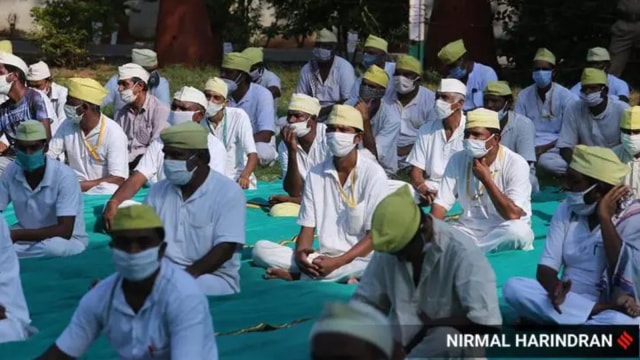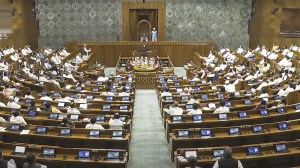Prisoners in 3 central jails of Gujarat to get psycho-social care, after project success in Sabarmati prison
Gujarat High Court Chief Justice Sunita Agarwal inaugurated psycho-socio care centres for rehabilitation, reformation and reintegration of jail inmates at central jails of Rajkot, Surat and Vadodara.
 During the event, Justice Biren Vaishnav of the High Court said that the first such psycho-socio centre was established at Sabarmati Central jail on August 19, 2022 in collaboration with Rashtriya Rashtra University (RRU). (Representational/Express File Photo)
During the event, Justice Biren Vaishnav of the High Court said that the first such psycho-socio centre was established at Sabarmati Central jail on August 19, 2022 in collaboration with Rashtriya Rashtra University (RRU). (Representational/Express File Photo)
Gujarat High Court Chief Justice Sunita Agarwal on Saturday inaugurated psycho-socio care centres for rehabilitation, reformation and reintegration of jail inmates at central jails of Rajkot, Surat and Vadodara via virtual mode, extending the initiative which was piloted at Sabarmati Central jail in Ahmedabad in 2022.
The initiative is spearheaded by the Gujarat State Legal Services Authority and the Gujarat government.
During the event, Justice Biren Vaishnav of the High Court said that the first such psycho-socio centre was established at Sabarmati Central jail on August 19, 2022, in collaboration with Rashtriya Rashtra University (RRU).
The initiative, being inaugurated by the then Chief Justice of India U U Lalit, was hailed by Justice Vaishnav for “helping the inmates express their emotions and feelings” to improve the overall mental health of the jail inmates.
Justice Vaishnav also added that the initiative is also being adopted in Jammu and Kashmir in collaboration with RRU.
Rajkot Central jail has 1,216 prisoners which includes 871 undertrials and 75 women prisoners. In Surat central jail at Lajpore, the Centre is expected to take care of 2,962 inmates, including 2,133 undertrial prisoners. Three psychologists of RRU will be in-charge at the three centres.
Chief Justice Agarwal said the programme is aimed at prisoners “languishing in jail” for long and that the methodology applied by the team of psychologists “is semi projective, projective and objective, psychological testing and evaluation of overall wellbeing”.
“The psychological evaluation is working in two ways – providing the present medical state of the person and at the same time an opportunity of catharsis for the beneficiaries. The method is showing excellent results. The same method is applied weekly on the same persons to identify the changes, assess and progress and it is found effective. The method is applied to all categories of inmates…Considering the success, it was decided to extend the services to three more jails..I hope Gujarat will be a model state for prison reforms and the concept of psycho-social care,” Chief Justice Agarwal said.
A two-day advocacy skills training programme for legal aid counsels was also inaugurated on Saturday. It was organised through the Indian Institute of Legal and Professional Development, aimed at teaching lawyers the art of advocacy. The trainees were provided with facts of cases. Thereafter, they had to enact various stages of a trial, including examination-in-chief and cross-examination.
The training programme will involve critique by the trainers followed by a reprisal again, taking the feedback from the trainers into consideration. The program will be conducted on February 3 and 4. Chief Justice Agarwal added that the program will prepare “legal aid warriors”.
Also present at the event were Delhi HC judges Justice Sanjeev Sachdeva and Justice Manoj Kumar Ohri. Supreme Court judge Justice Sanjiv Khanna was scheduled to attend the event but could not because of his “preoccupation”, said CJ Agarwal.
CJ Agarwal, hailing the initiative of the training program, added, “Feudal structure of the society had deeply percolated into the working of the courts of India.
“Advocacy has never been seen from the institutional perspective. It was always considered a profession of the elite, by the elite and for the elite. With the globalisation and emphasis on inclusiveness of all sections of society, our courts have become more accessible…Some people may attribute flooding of cases to frivolous litigation, but…I consider this as a sign of repositioning the faith of the society in the justice dispensation system of our country,” she said.












